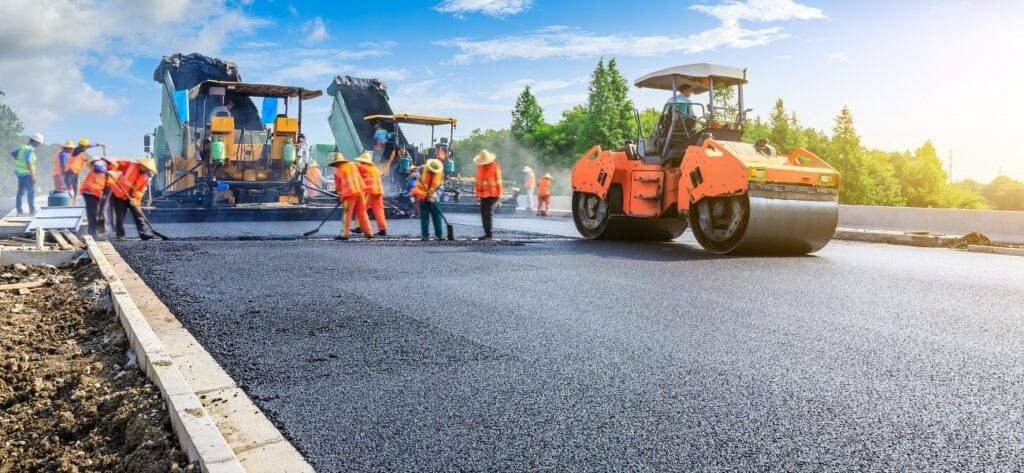Across New South Wales, the way roads are built is changing. Sustainability is no longer an optional extra — it’s a design requirement. From recycled materials to smarter construction practices, road projects are now expected to deliver not only performance and durability but also long-term environmental benefits.
At WBS Engineers, we’re seeing this shift firsthand. As civil engineers delivering road and infrastructure works across NSW, our focus is on combining quality construction with sustainable methods that reduce waste, cut emissions, and make better use of resources.
Recycled and Reclaimed Materials: The Foundation of Change
One of the most significant steps forward in sustainable road construction is the use of recycled materials. Roads that once relied entirely on virgin aggregates and bitumen are now incorporating recovered resources such as:
- Reclaimed asphalt pavement (RAP) — used to replace a portion of new asphalt, reducing the demand for fresh bitumen.
- Recycled concrete aggregates (RCA) — crushed and reused as base or sub-base layers.
- Recovered glass sand and steel slag — improving pavement strength and stability.
These materials not only divert waste from landfill but also reduce the environmental footprint of quarrying and transportation. At WBS Engineers, we work closely with suppliers and local councils to ensure every material meets NSW road authority specifications and sustainability targets.
Energy-Efficient Construction Methods
Beyond the materials themselves, the way roads are built is becoming cleaner and more efficient.
New warm-mix asphalt technologies allow asphalt to be produced and laid at lower temperatures, cutting energy use and reducing greenhouse gas emissions without compromising quality.
Meanwhile, modern compaction and paving equipment equipped with telematics and GPS monitoring improve fuel efficiency and accuracy, ensuring each layer meets engineering design requirements with minimal rework.
WBS Engineers integrates these practices across our road projects to balance environmental performance with practical construction outcomes.
Stormwater and Drainage Design
Sustainable road design doesn’t stop at the pavement surface. Roads play a critical role in how water moves through urban and regional environments. Poorly managed runoff can lead to erosion, pollution, and flooding — all of which impact surrounding communities and ecosystems.
Our engineers incorporate water-sensitive urban design (WSUD) principles into every project. This includes:
- Permeable pavements that allow infiltration where possible.
- Bio-retention swales and sediment controls.
- Drainage systems designed to reduce contamination of nearby waterways.
These features ensure roads are not only functional but also environmentally resilient.
High-Performance and Low-Carbon Materials
Advances in high-performance concrete and low-carbon asphalt are redefining what “sustainable” means in road construction. New binder technologies and supplementary cementitious materials (SCMs) — such as fly ash and slag — are reducing carbon intensity while improving pavement life.
At WBS Engineers, our teams assess site conditions, traffic loading, and environmental factors to select materials that meet both strength and sustainability objectives. The result is infrastructure that performs longer and requires fewer maintenance interventions, saving resources over its lifecycle.
Smarter Delivery Through Digital Tools
Technology is also driving the next generation of road construction. Drones, sensors, and digital models enable faster, more accurate data collection and planning.
These tools support sustainability by:
- Reducing site visits and vehicle emissions.
- Improving earthwork efficiency through precise volume tracking.
- Supporting quality assurance through automated reporting.
By integrating digital delivery with sustainable engineering, WBS Engineers ensures every project meets modern performance and environmental standards.
The Road Ahead
The rapid progress in sustainable road construction marks a turning point for the civil engineering industry. Roads are no longer judged solely by how long they last, but by how responsibly they’re built.
At WBS Engineers, we take pride in being part of this evolution. Through innovation, collaboration, and commitment to compliance, we help clients deliver road infrastructure that supports both NSW’s transport needs and its sustainability goals.
Whether it’s the use of recycled aggregates, low-carbon asphalt, or smart construction monitoring, the future of road construction is clear — it’s sustainable, efficient, and built to last.


